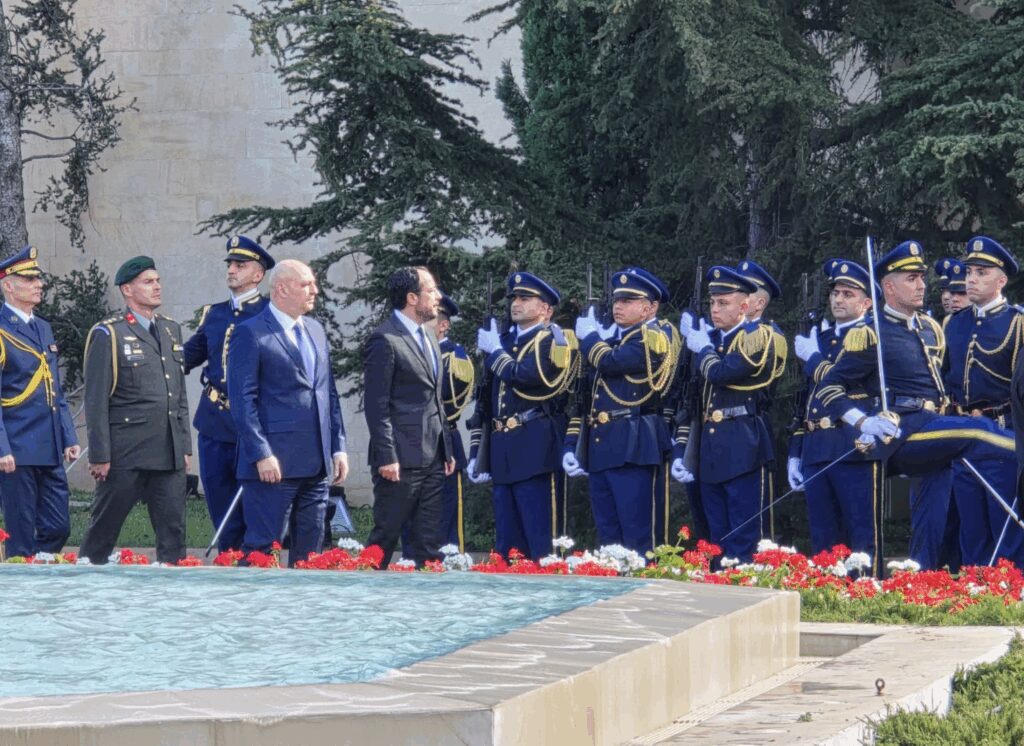Senior government sources from the Republic of Cyprus view the agreement signed on Wednesday for the delimitation of the Exclusive Economic Zone (EEZ) between Cyprus and Lebanon as a significant development that puts an end to Turkey’s influence in a pivotal country of the Eastern Mediterranean.
The agreement is based on the median line principle and came after negotiations that began in 2007. They stopped in 2010, following the EEZ agreement between Cyprus and Israel. At that time, Lebanon raised objections about Israel’s maritime zone boundaries, a dispute that was resolved in 2022 through American mediation. The process restarted in January 2025, culminating in Wednesday’s signing between Nikos Christodoulides and Lebanon’s President Joseph Aoun. During the negotiation period, Turkey also posed significant obstacles, attempting to cancel the agreement by exerting influence on Lebanese governments.
Cyprus-Lebanon deal: How Turkish influence is being cut
According to senior Cypriot government sources who spoke to parapolitika.gr, “what delayed the final signing was Turkey’s reactions. Obviously, this agreement is something Turkey will not be satisfied with. It strikes their Blue Homeland narrative and for them it’s a major blow in the Eastern Mediterranean. That’s why Turkey blocked it since 2007. This agreement is an issue for Turkey and the role it wants to play in the region. Obviously, it’s also due to our own relations as the Republic of Cyprus that we have developed with the countries of the region.”
The Republic of Cyprus is expected to move in the same direction with Syria and develop consultations for EEZ delimitation in the coming period, thus putting its stamp on the region. This tactic is expected to make things even more difficult for Turkey, which last July was in secret negotiations with Damascus for a maritime border delimitation agreement modeled on the Turkish-Libyan memorandum. According to the Cypriot official, corresponding discussions between Cyprus and Syria “are premature, but not excluded.”
The same source clarifies that the Cyprus-Lebanon agreement opens prospects for cooperation in exploiting energy deposits. “Obviously where the boundaries of our exclusive economic zones are, it greatly facilitates the exploitation of deposits,” they note and emphasize that this will be the next step. Moreover, the United States also positively supports the joint exploitation (Cyprus and Lebanon) of energy deposits, as relations between Cyprus and the US are at an excellent point.
On the occasion of signing the EEZ agreement between the two presidents of Cyprus and Lebanon, the two countries are extending their cooperation to other sectors. Such as Lebanon’s strategic cooperation with the European Union, similar to that of Egypt. According to the government official, “half a trillion euros from the European Union to Lebanon as aid has already been decided. This was done on President Christodoulides’ initiative when he visited Lebanon again in March 2024 with European Commission President Ursula von der Leyen. It was our initiative. And now what we’re trying to do is close negotiations for the strategic comprehensive agreement between the European Union and Lebanon.”
At the same time, the two countries are set to cooperate on another significant project, the electrical interconnection of Cyprus and Lebanon. The two countries jointly submitted a request to the World Bank for conducting a feasibility study for such a project. However, as clarified to us, this project will proceed independently of the electrical interconnection project (GSI) between Greece, Cyprus, and Israel.




